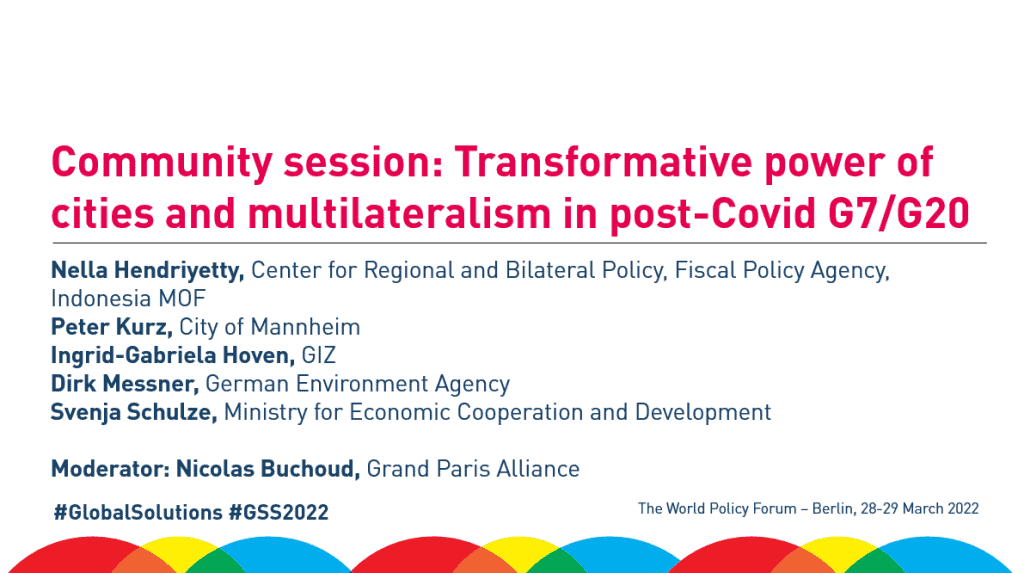Policy Area:
Community sessions
Community sessions
Topics:
Summit 2022
Summit 2022
This session is curated by Nicolas Buchoud, Fellow, Global Solutions Initiative.
Background and context
In the turbulences of the past 24 months, a seamless interaction and collaboration of actors at various levels of governance – global, national, regional, and local – was paramount in order to handle the concrete challenges of the pandemic locally, while giving direction and support globally.
It was a visible portrait of the importance of multi-level governance, which is also critical to deal with challenges other than the pandemic. Among these are the promotion of public health, climate change mitigation and adaptation, infrastructure development (social, physical, digital), biodiversity protection, or the achievement of the SDGs.
The transformation required to build an economy serving human well-being within planetary boundaries is at least as big a challenge as the pandemic and, again, the collaboration across governance levels is key. But the pandemic also had strong re-centralizing effects, as after the global financial crisis of 2008.
In 2021, G20 Italy already made some progress in recognizing the ability of major and smaller cities to drive innovation and resilience and in 2022, the G7 presidency of Germany has acknowledged the transformative power of cities’ relevance to reach global sustainable and environmental goals.
Now, it will be important to ensure a durable consensus that subnational governments are key to ‘recover together’ from the pandemic. In view of major transformation processes in the economic, mobility, work and social protection systems worldwide, city leaders must come together and speak with one voice -albeit that their local challenges differ significantly from those of others.
Achieving a sustainable exit strategy from the current pandemic, anticipating on future health risks, making the urban living for all citizens sustainable and turning urban development towards the common good have to become part of a continuous high-level dialogue within global affairs, starting with the G7/G20.
Target and content of the panel
Achieving a structured involvement of cities and the civil society in G7/G20 agenda setting and delivery is an issue of governance and finance. In times of growing digital and spatial divides, it is also about nurturing a new culture of living together as illustrated for instance by the New European Bauhaus, an interdisciplinary process that connects the European Green De?to living spaces.
‘The Transformative Power of Cities in post Covid Recovery’ panel at the Global Solutions Summit 2022 is a bridge between the T7 and the G7. It is a milestone on the way to an Urban and Cities Summit during the G7 process, gathering cities, advocacy and research networks and organizations involved in current multilateral negotiations - climate, post 2020 global biodiversity framework…
Addressing global public and private decision makers, citizens and multilateral financial institutions, the panel will discuss how the international urban dimension should be reflected in the final communiqué of the G7 Leaders’ Summit and beyond it, in the G7/G20 and T7/T20.
Drawing the lessons from the UK G7 Core Cities summit in 2021, it will make proposals on creating a platform for cities to have a voice and visibility during the current and subsequent G7 presidencies, starting with the G7 Japan in 2023. One outcome would be the creation of an official and permanent Urban 7 Engagement Group complementing the efforts initiated within the G20.
The session will address core issues to strengthen multilevel governance and achieve the Agenda 2030. This includes breakthroughs in circular economy creative economy, social, digital and physical sustainable and resilient infrastructure investments, to localize and leverage planetary compatible socio-economic transformations.







